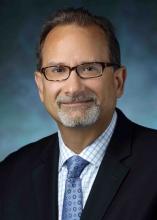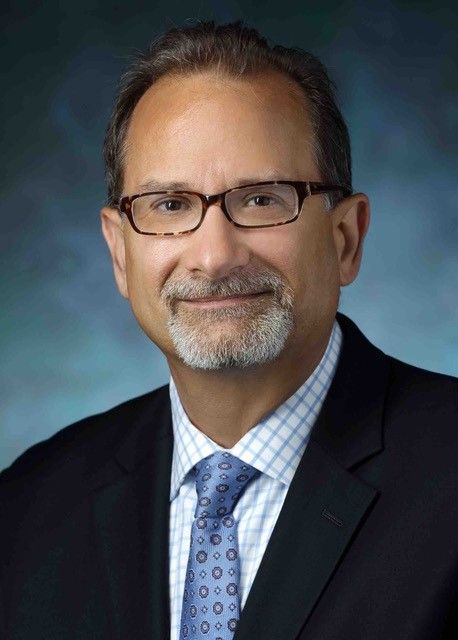User login
Constantine G. Lyketsos, MD, remembers when the Academy of Psychosomatic Medicine held annual meetings that attracted 200. Now, the subspecialty organization’s meeting attracts about 1,000 people, and is getting a new name to reflect that growth.
“The field has grown substantially, and I think it will grow further with this name change,” said Dr. Lyketsos, who along with James L. Levenson, MD, spearheaded the effort to have the subspecialty recognized almost 20 years ago. “The field is the same. [But the] name change is going to change the way we are perceived by our primary customers – the patients. It will probably be a positive development for our trainees.”
The organization will be rebranded as the Academy of Consultation-Liaison Psychiatry. The name change, aimed in part at shedding the ambiguity around the word “psychosomatic” and better capturing the mission of consultation-liaison psychiatry, will be reflected across the group’s platforms. The tagline on the group’s journal, Psychosomatics, will become “The Journal of Consultation-Liaison Psychiatry,” and the theme of the group’s November 2018 annual meeting in Orlando will focus on the rebranding.
“I’m a consultation-liaison psychiatrist, and I think that clears the air from the very beginning,” said Dr. Lyketsos, professor and chair of psychiatry at Johns Hopkins Bayview in Baltimore.
Consultation-liaison psychiatrists work collaboratively with four groups of “complex medically ill” patients, Dr. Lyketsos, Dr. Levenson, and associates wrote a few years ago while advocating on behalf of the subspecialty. They treat patients with comorbid psychiatric and general medical illness; those with psychiatric illness directly tied to a primary medical condition, such as dementia or delirium; those with “complex illness behavior such as ‘somatoform’ disorders”; and those admitted to medical-surgical units after incidents such as attempted suicide. Consultation-liaison psychiatrists, who typically work in teaching hospitals, tend to provide services that are reactive – emergent or urgent (Eur J Psychiatry. 2006;20[3]:165-71).
Some think the field is limited to inpatient consultations, but it encompasses a “spectrum of physicians working at the interface between psychiatry and the other medical specialties, including many outpatient settings,” wrote Robert J. Boland, MD, academy President James R. Rundell, MD, and their associates (Psychosomatics. 2017. doi: 10.1016/j.psym.2017.11.006).
“Clinicians in consultation-liaison psychiatry face a wide breadth of conundrums and controversies in all areas of practice,” Dr. Rundell wrote in a recent newsletter. In addition to raising awareness among patients and medical-surgical colleagues, Dr. Rundell said, the academy hopes to educate other psychiatrists about the scope of consultation-liaison psychiatry.
The change will go into effect April 15.
Constantine G. Lyketsos, MD, remembers when the Academy of Psychosomatic Medicine held annual meetings that attracted 200. Now, the subspecialty organization’s meeting attracts about 1,000 people, and is getting a new name to reflect that growth.
“The field has grown substantially, and I think it will grow further with this name change,” said Dr. Lyketsos, who along with James L. Levenson, MD, spearheaded the effort to have the subspecialty recognized almost 20 years ago. “The field is the same. [But the] name change is going to change the way we are perceived by our primary customers – the patients. It will probably be a positive development for our trainees.”
The organization will be rebranded as the Academy of Consultation-Liaison Psychiatry. The name change, aimed in part at shedding the ambiguity around the word “psychosomatic” and better capturing the mission of consultation-liaison psychiatry, will be reflected across the group’s platforms. The tagline on the group’s journal, Psychosomatics, will become “The Journal of Consultation-Liaison Psychiatry,” and the theme of the group’s November 2018 annual meeting in Orlando will focus on the rebranding.
“I’m a consultation-liaison psychiatrist, and I think that clears the air from the very beginning,” said Dr. Lyketsos, professor and chair of psychiatry at Johns Hopkins Bayview in Baltimore.
Consultation-liaison psychiatrists work collaboratively with four groups of “complex medically ill” patients, Dr. Lyketsos, Dr. Levenson, and associates wrote a few years ago while advocating on behalf of the subspecialty. They treat patients with comorbid psychiatric and general medical illness; those with psychiatric illness directly tied to a primary medical condition, such as dementia or delirium; those with “complex illness behavior such as ‘somatoform’ disorders”; and those admitted to medical-surgical units after incidents such as attempted suicide. Consultation-liaison psychiatrists, who typically work in teaching hospitals, tend to provide services that are reactive – emergent or urgent (Eur J Psychiatry. 2006;20[3]:165-71).
Some think the field is limited to inpatient consultations, but it encompasses a “spectrum of physicians working at the interface between psychiatry and the other medical specialties, including many outpatient settings,” wrote Robert J. Boland, MD, academy President James R. Rundell, MD, and their associates (Psychosomatics. 2017. doi: 10.1016/j.psym.2017.11.006).
“Clinicians in consultation-liaison psychiatry face a wide breadth of conundrums and controversies in all areas of practice,” Dr. Rundell wrote in a recent newsletter. In addition to raising awareness among patients and medical-surgical colleagues, Dr. Rundell said, the academy hopes to educate other psychiatrists about the scope of consultation-liaison psychiatry.
The change will go into effect April 15.
Constantine G. Lyketsos, MD, remembers when the Academy of Psychosomatic Medicine held annual meetings that attracted 200. Now, the subspecialty organization’s meeting attracts about 1,000 people, and is getting a new name to reflect that growth.
“The field has grown substantially, and I think it will grow further with this name change,” said Dr. Lyketsos, who along with James L. Levenson, MD, spearheaded the effort to have the subspecialty recognized almost 20 years ago. “The field is the same. [But the] name change is going to change the way we are perceived by our primary customers – the patients. It will probably be a positive development for our trainees.”
The organization will be rebranded as the Academy of Consultation-Liaison Psychiatry. The name change, aimed in part at shedding the ambiguity around the word “psychosomatic” and better capturing the mission of consultation-liaison psychiatry, will be reflected across the group’s platforms. The tagline on the group’s journal, Psychosomatics, will become “The Journal of Consultation-Liaison Psychiatry,” and the theme of the group’s November 2018 annual meeting in Orlando will focus on the rebranding.
“I’m a consultation-liaison psychiatrist, and I think that clears the air from the very beginning,” said Dr. Lyketsos, professor and chair of psychiatry at Johns Hopkins Bayview in Baltimore.
Consultation-liaison psychiatrists work collaboratively with four groups of “complex medically ill” patients, Dr. Lyketsos, Dr. Levenson, and associates wrote a few years ago while advocating on behalf of the subspecialty. They treat patients with comorbid psychiatric and general medical illness; those with psychiatric illness directly tied to a primary medical condition, such as dementia or delirium; those with “complex illness behavior such as ‘somatoform’ disorders”; and those admitted to medical-surgical units after incidents such as attempted suicide. Consultation-liaison psychiatrists, who typically work in teaching hospitals, tend to provide services that are reactive – emergent or urgent (Eur J Psychiatry. 2006;20[3]:165-71).
Some think the field is limited to inpatient consultations, but it encompasses a “spectrum of physicians working at the interface between psychiatry and the other medical specialties, including many outpatient settings,” wrote Robert J. Boland, MD, academy President James R. Rundell, MD, and their associates (Psychosomatics. 2017. doi: 10.1016/j.psym.2017.11.006).
“Clinicians in consultation-liaison psychiatry face a wide breadth of conundrums and controversies in all areas of practice,” Dr. Rundell wrote in a recent newsletter. In addition to raising awareness among patients and medical-surgical colleagues, Dr. Rundell said, the academy hopes to educate other psychiatrists about the scope of consultation-liaison psychiatry.
The change will go into effect April 15.

